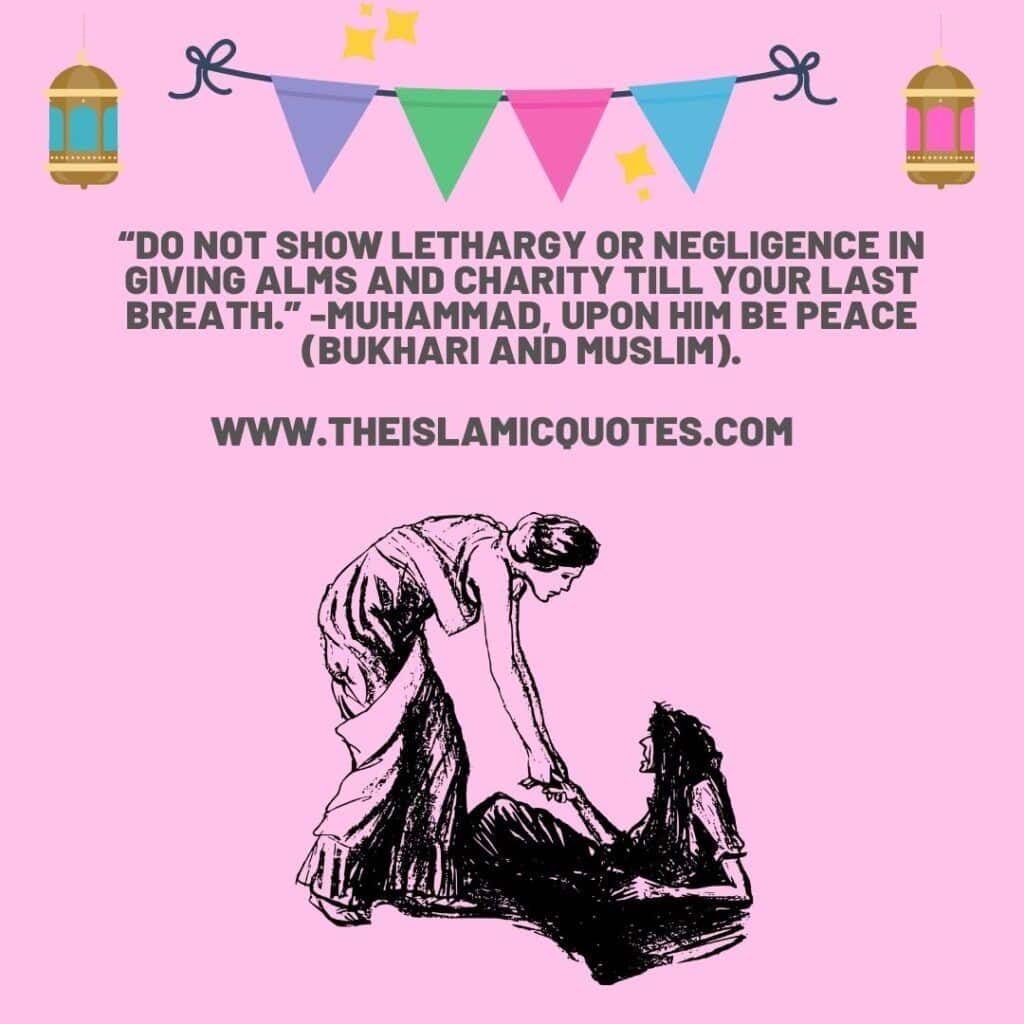Lessons from the life of Prophet Mohammad: Muhammad (PBUH) is the last Prophet of the Islamic religion. He was assigned the responsibility of preaching and confirming the monotheistic teachings of Islam. As a result, he became a religious, social, and political leader. During his prophethood, he portrayed several traits that can be perceived as lessons from his life.
What Can We Learn From Prophet Mohammad’s Life?
Prophet (P.B.U.H) can be taken as a prime example of a perfect person. His personality and his aura can teach everyone so many lessons. In this article, we have tried to capture the ocean of his knowledge into a vessel.

# 1 – Always be honest

Long before Prophethood, Muhammad (P.B.U.H) was known as sadiq and ameen by the people because of his honesty and truthfulness. Such attributes were extremely rare in Arabia during that period, since business owners and merchants used to deceive their customers to gain more profit.
Nevertheless, Prophet Muhammad did not demonstrate the traits of the people of Arabia and was loyal whilst conducting trade. In fact, during a trade journey for Hazrat Khadija (RA), another employee was sent along with him. This was done because she wants to test the honesty of Prophet Muhammad.
The employee indicated that he had observed Muhammad (PBUH) be an honest dealer, who carried the traits of a sincere man. This trait of Prophet Muhammad (PBUH) really impressed Hazrat Khadija (RA). Eventually, she sent him a proposal and Prophet Muhammad (PBUH) accepted it. Thus, this trait and lifestyle of Prophet Muhammad (PBUH) teach Muslims the lesson of honesty. For more guidance on this topic, I recommend that you go through these Islamic Quotes on Sincerity & Ikhlas.
# 2 – Always be humble

The Prophet Muhammad (PBUH) was an example of humbleness. He applied this conduct with friends, family, followers, and even enemies. During the incident of Taif, he forgave the people for throwing rocks at him, hoping their future generations would travel down the right path.
In addition, during the liberation of Makkah, he forgave all the non-Muslims under the condition of their surrender. Adding on, he never disassociated himself from his followers. He ate the same things as them, wore the same type of clothes, and spoke to them with humbleness. Thus, humbles is a lesson we should learn from Prophet Muhammad (PBUH).
# 3 – Live a Simple Life

Prophet Muhammad (PBUH) lived a simple life despite having access to all the resources in the world. Even after the conquest of Makkah, he did not wish to gain possession of the treasury of Makkah. He often did not have food in his own house and wished to feed the poor instead.
His house, clothes, and overall standard of living were extremely simple, as he believed life in the hereafter was better than this worldly life. Proving how living a simple life is a lesson to be learned from Prophet Muhammad (PBUH). As humans are burdened with the toxicity of capitalism, his teachings can be a source of reflection for everyone. As to how leading a simple life can aid in contentment in this life. And consequently in the hereafter.
# 4 – Involve other people in decision-making
Prophet Muhammad (PBUH) keenly took the recommendations of his followers in terms of policymaking and leading the ummah. For example, during the Battle of the Trench, he actively took advice from his followers. He took Hazrat Salman Farsi’s advice of digging a strategic trench to gain an advantage over the enemy.
This strategy ultimately resulted in Muslims winning the battle of the trench. Proving how, involving people in decision-making is an effective practice, and is a lesson to be learned from Prophet Muhammad (PBUH). it also shows how he did not shy away from taking advice from people.
# 5 – Have a sense of merit
Prophet Muhammad (PBUH) demonstrated attributes of being the liberator of the oppressed individuals of Arabia. For example, Hazrat Bilal (RA) was a slave and was subject to harsh and brutal treatment during the years of his slavery. However, once he accepted Islam Prophet Muhammad (PBUH) trained him to become one of the most prominent followers of Islam.
In fact, he was assigned the task of announcing the call for prayers (azan). Adding on, although historically Hazrat Khalid bin Waleed (RA) had caused serious harm to the Muslim cause, Prophet Muhammad (PBUH) made him a commander of the Muslim army after he accepted Islam. He also gained the title of Saifullah, which translates to the sword of Allah. These examples demonstrate how they assigned people to positions based on their merit, and not their status or history.
# 6 – Have a focused approach
Prophet Muhammad (PBUH) had an extremely focused approach towards spreading the message and religion of Allah. As a result, he was willing to withstand any obstacles that stood in the way. When Islam was first starting to spread in Makkah, the leaders offered him several incentives in exchange for holding back on preaching. Examples of the incentives include chief status and wealth. Nevertheless, Prophet Muhammad (PBUH) stood affirmed on his mission.
# 7 – Give as much charity as you can

Prophet Muhammad (PBUH) has frequently given charity to the needy and the poor, in the form of food and other materials. He stated that Muslims should give charity without any delay, as it helps them in this and life and in the afterlife. Hence, Muslims were urged to give charity based on their capacity.
# 8 – Honour and respect the rights of women
Prophet Muhammad (PBUH) taught his followers that women are the partners of men and not their property. He claimed that men and women complement each other, and they should reside in harmony. Thus, Prophet Muhammad (PBUH) serves as an example for men to respect their wives and grant them the status they deserve. Learn more with our previous post on 50 Best Islamic Quotes on Women and Their Status in Islam.
# 9 – Being kind to neighbors
Prophet Muhammad (PBUH) was always kind to his neighbors and the people around him. He urged that kindness would have resulted in a better Islam community and ensure harmony. Hence, as his followers, Muslims should adopt the conduct of being kind to their neighbors and building a good relationship with them.
# 10 – Keep yourselves physically and mentally healthy
Prophet Muhammad (PBUH) made sure he was physically and mentally healthy so that he could effectively spread the message of Allah and Islam. According to him, lack of health results in distractions from establishing a connection with Allah and spreading his message to the non-believers. Hence, he guided his followers to avoid overeating, and focus on establishing good mental and physical health. Thus, remaining physically and mentally healthy is a lesson from the life and traits of Prophet Muhammad (PBUH).
# 11 – Always keep learning
Prophet Muhammad (PBUH) actively subscribed to the importance of learning about religion and things beyond religion. He believed that knowledge brought individuals closer to Allah. Henceforth, as Muslims, we should actively indulge in activities that increase our knowledge and learn new information. Here are the most Inspiring Islamic Quotes on Education / Knowledge /Study.
Conclusion
All of these lessons can be taken as golden nuggets to be implemented in our lives today. Everyone, be it a leader or a normal citizen – can take advantage of these teachings to be successful in this world and the hereafter.
All of the trials that Prophet (P.B.U.H) faced in his life can be taken as examples, so whenever we are in trouble, we can learn to be patient like him.
